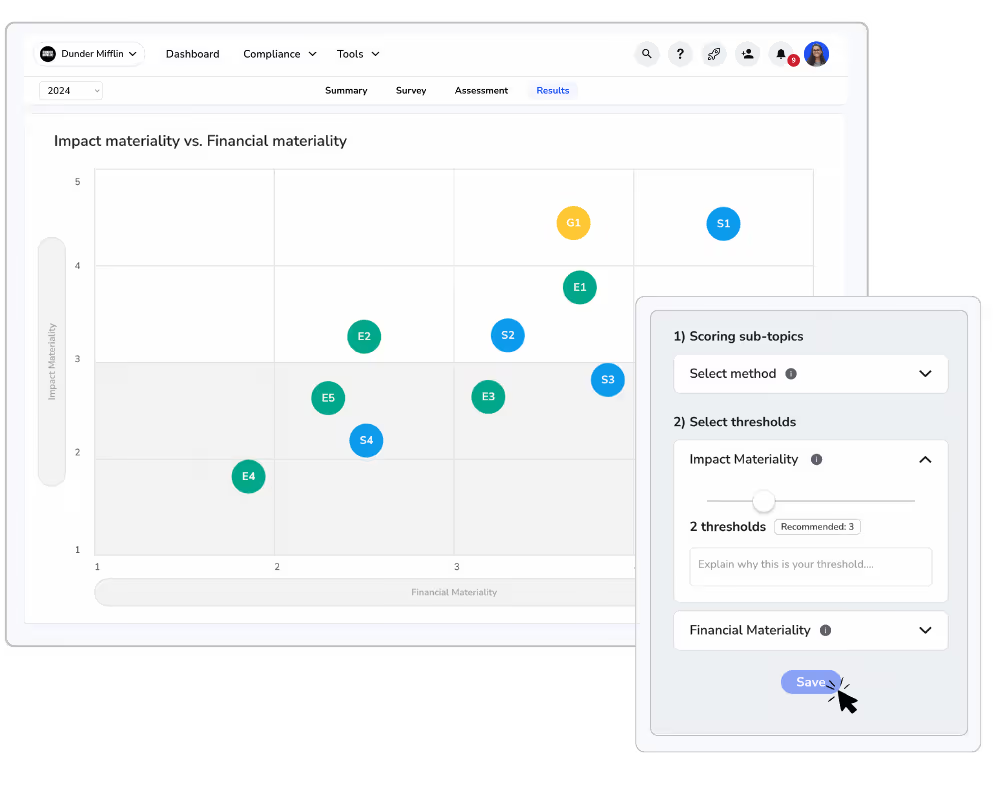CSRD Reporting Compliance & Double Materiality. Sorted.
From gap analysis to ESRS reporting, we give you everything you need to nail CSRD reporting requirements. No policy headaches required.
.avif)
Join the hundreds of teams who care and deliver
CSRD & DOUBLE MATERIALITY
Stop struggling with spreadsheets and confusing requirements. Futureproof helps you track Scope 1, 2, and 3 emissions, stay on top of SECR reporting requirements in the UK, and build a clear path to Net Zero.

See exactly how we help you simplify B Corp
CSRD Gap Analysis & ESRS Alignment
What it does:
Shows exactly what you’re missing against ESRS standards, so you’re not caught out mid-report.
Why you (and your team) won’t hate it:
No more deciphering dry policy docs with a highlighter and a headache. We tell you what’s in place, what’s not, and what to do next, clearly, quickly, and in your own words.
.avif)
Run Double Materiality Assessments with Ease
What it does:
Shows exactly what you’re missing against ESRS standards, so you’re not caught out mid-report.
Why you (and your team) won’t hate it:
It’s like having an ESG analyst in your browser. Just answer the prompts and let the platform handle the hard part, no external consultants or whiteboard marathons required.

Centralised CSRD Data Collection (Scope 1, 2 & 3)
What it does:
Shows exactly what you’re missing against ESRS standards, so you’re not caught out mid-report.
Why you (and your team) won’t hate it:
No more deciphering dry policy docs with a highlighter and a headache. We tell you what’s in place, what’s not, and what to do next, clearly, quickly, and in your own words.
.avif)
.avif)
Audit-Ready CSRD Reports & XBRL Submission
What it does:
Shows exactly what you’re missing against ESRS standards, so you’re not caught out mid-report.
Why you (and your team) won’t hate it:
No more deciphering dry policy docs with a highlighter and a headache. We tell you what’s in place, what’s not, and what to do next, clearly, quickly, and in your own words.
Proof that doing good, is good for business
hours saved
more sales
boost

FAQs
CSRD applies to large EU companies and non-EU companies with significant operations in the EU. This includes listed companies, large private companies meeting certain thresholds, and eventually SMEs. Timelines vary depending on company size and reporting year.
The first companies need to report in 2025 for the 2024 financial year. Compliance will then phase in for other companies between 2025 and 2029.
Start the conversation
No sales pitches, let's see what you need and if we're the right people to help you.

.svg)
.svg)




.avif)



.avif)
